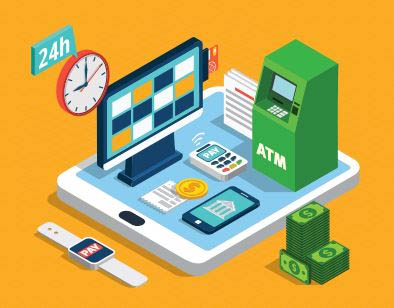Digital Banks: Regulatory delays, lack of readiness stall Bangladesh’s cashless ambitions
- Update Time : Monday, June 30, 2025

TDS Desk:
More than a year after Bangladesh Bank issued the first-ever licences for digital banks, not a single one has begun operations, a major setback for the country’s vision of building a cashless, tech-driven economy.
Despite strong demand, widespread mobile connectivity and significant policy ambition, the digital banking initiative — meant to offer 24/7 financial services via mobile apps and online platforms — is in limbo.
The central bank’s 2023 approvals were heralded as a landmark reform, but weak institutional preparedness and failure to meet regulatory conditions have brought progress to a standstill.
The government’s intent was to empower small businesses and unbanked citizens by enabling branchless, technology-first banks. Yet, the only fully licensed digital bank, Nagad, has failed to launch operations, while nine other shortlisted applicants are still struggling to meet eligibility criteria.
POLICY PUSH, PRIVATE SECTOR RESPONSE
In 2023, Bangladesh Bank received applications from 54 institutions seeking to operate digital banks. After evaluating them against new guidelines, it issued Letters of Intent (LoIs) to 10 firms, including Nagad.
Among them, only Nagad received a final licence. However, due to repeated failures to fulfil the central bank’s conditions, its launch remains on hold.
Although the regulator gave multiple extensions, Nagad has yet to complete the groundwork for starting operations, and no timeline has been officially declared — leaving the situation uncertain.
When asked for an update, Bangladesh Bank Director and Nagad Administrator Mutasim Billah said,“ Nagad is already in the process of starting its activities after receiving the digital bank certificate. A team is working to enter the market.”
OTHER APPLICANTS IN LIMBO
The nine other institutions that received LoIs have also failed to meet the required conditions, casting doubt on their certification.
Bangladesh Bank Spokesperson and Executive Director Arif Hossain Khan said the central bank would first assess Nagad’s performance before issuing any further licences:
“The activities of the certified bank will be monitored, and based on that, certificates for the next banks will be considered.”
WHY DIGITAL BANKS MATTER
Experts say digital banks are crucial for financial inclusion and economic growth, especially for small traders, rural communities and the informal sector.
Dr Muhammad Abdul Mazid, former Chairman of the National Board of Revenue (NBR), “Digital banking services are essential for the growth of the small and informal economy.”
Besides, he said, revenue collection would increase significantly if the payment system became fully digital. Many people are paying VAT now, but it’s not deposited into the revenue board.
Due to the lack of documentation, Abdul Mazid said, the NBR cannot take action against VAT evasion. A fully digital payment system would automatically deposit VAT into the revenue board’s software, improving transparency, he said.
WHO’S IN AND WHO’S WAITING
Final Licences Issued:
- Nagad Digital Bank (yet to launch)
- Kori Digital Bank (LoI issued)
- Bank-led Digital Initiatives:
- Bank Asia-led Digital Bank
- BRAC Bank-led bKash Digital Bank
- Digi10 (consortium of 10 private banks)
- Pending LoIs:
- Smart Digital Bank
- Japan Bangla Digital Bank
- North East Digital Bank
- Regulatory Requirements
- Under Bangladesh Bank’s 2023 digital banking framework, applicants must meet several conditions:
- Minimum paid-up capital: Tk 125 crore
- No branch network (only a registered head office)
- Mandatory IPO within five years of licensing
Board composition: At least 50% members must have expertise in IT, cybersecurity, or AI
Why It Still Matters
- Financial Inclusion
With over 6 crore unbanked adults (35% of the population), digital banks could offer mobile-based services, microloans, and low-cost accounts, especially in rural areas.
The existing infrastructure, including 186 million mobile connections, 93 million smartphone users, and bKash’s 350,000-agent network, can be leveraged to bring financial services to the doorstep.
- Boost to GDP
Digital banking could add 1.7% to GDP (around $6.2 billion annually) by digitising transactions in retail, agriculture and garment sectors.
The World Bank estimates that reforms such as interoperable wallets and higher transaction limits could create between 96,000 and 460,000 new jobs in the digital financial services sector.
- Tech Innovations
Digital banks are expected to deploy AI for credit scoring and blockchain for secure, low-cost cross-border payments.
The central bank is also exploring Central Bank Digital Currencies (CBDCs) that could integrate with digital banking platforms to streamline transactions.
- Policy Momentum
The Smart Bangladesh Vision 2027 aims to shift 75% of all transactions to digital platforms.
The Digital Financial Services (DFS) Guidelines 2023 further mandate tech-first governance, including AI-based dispute resolution and robust cybersecurity standards.
Roadblocks
CYBERSECURITY CONCERNS:
The $81 million Bangladesh Bank heist in 2016 remains a cautionary tale. Digital banks must invest in biometric verification and AI-driven fraud prevention.
DIGITAL LITERACY & ACCESS:
Only 38.9% internet penetration (2023) and 47% smartphone adoption (2022) pose serious barriers. Public education campaigns are essential.
INFRASTRUCTURE DEFICITS:
Many rural areas suffer from poor internet connectivity. Also, delays in launching platforms like Binimoy — the government’s interoperable digital transaction system — are holding back momentum.
WAY FORWARD
Experts suggest that hybrid models combining digital banks with mobile financial services (MFS) like bKash could enhance rural reach.
Bangladesh can also draw from India’s UPI system and Singapore’s regulatory playbook to build a secure, scalable, and inclusive digital banking ecosystem.
Digital banks in Bangladesh hold enormous potential to modernise the economy, improve transparency, and foster inclusion. But without swift regulatory action, capacity building, and infrastructure investment, the promise of a cashless, connected future will remain just that — a promise.















